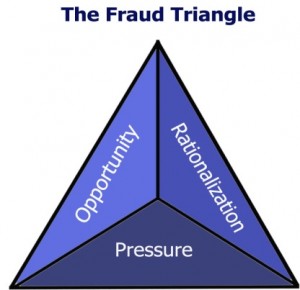What to do when the audit ends

Financial audits conducted by outside experts are among the most effective tools for revealing risks in not-for-profits. They help assure donors and other stakeholders about your stability — so long as you respond to the results appropriately. In fact, failing to act on issues identified in an audit could threaten your organization’s long-term viability.
Working with the draft
Once outside auditors complete their work, they typically present a draft report to an organization’s audit committee, executive director and senior financial staffers. Those individuals should take the time to review the draft before it’s presented to the board of directors.
Your organization’s audit committee and management also should meet with the auditors prior to the board presentation. Often auditors will provide a management letter (also called “communication with those charged with governance”), highlighting operational areas and controls that need improvement. Your nonprofit’s team can respond to these comments, indicating ways they plan to improve the organization’s operations and controls, to be included in the final letter. The audit committee also can use the meeting to ensure the audit is properly comprehensive.
Executive director’s role
One important audit committee task is to obtain your executive director’s impression of the auditors and audit process. Were the auditors efficient, or did they perform or require redundant work? Did they demonstrate the requisite expertise, skills and understanding? Were they disruptive to operations? Consider this input when deciding whether to retain the same firm for the next audit.
The committee also might want to seek feedback from employees who worked most closely with auditors. In addition to feedback on the auditors, they may have suggestions on how to streamline the process for the next audit.
No material misrepresentation
The final audit report will state whether your organization’s financial statements present its financial position in accordance with U.S. accounting principles. The statements must be presented without any inaccuracies or “material” — meaning significant — misrepresentation.
The auditors also will identify, in a separate letter, specific concerns about material internal control issues. Adequate internal controls are critical for preventing, catching and remedying misstatements that could compromise the integrity of financial statements. The auditors’ other suggestions, presented in the management letter, should include your organization’s responses.
If the auditors find your internal controls weak, promptly shore them up. You could, for example, implement new controls or new accounting practices.
Contact us if you have questions about audits and post-audit procedures.
© 2020





 Making the right call – Understanding that not all transactions are perfect, auditors must determine what differences or errors are material and force the auditor to alter their opinion on either the controls or financial statements. Likewise, officials are tasked to make sure that every game is played fairly. Some things, like a holding penalty, will not determine whether a game was played, as a whole, fairly or not but major issues might. An example of this would be like playing with deflated footballs. This would cause an unfair advantage and may cause the contest to come under question and possibly a forfeit. In short, a holding penalty would be the equivalent of a five dollar difference between the receipt and what was recorded in the books while playing with deflated footballs would be the equivalent of a material misstatement.
Making the right call – Understanding that not all transactions are perfect, auditors must determine what differences or errors are material and force the auditor to alter their opinion on either the controls or financial statements. Likewise, officials are tasked to make sure that every game is played fairly. Some things, like a holding penalty, will not determine whether a game was played, as a whole, fairly or not but major issues might. An example of this would be like playing with deflated footballs. This would cause an unfair advantage and may cause the contest to come under question and possibly a forfeit. In short, a holding penalty would be the equivalent of a five dollar difference between the receipt and what was recorded in the books while playing with deflated footballs would be the equivalent of a material misstatement.
 by Lee Byrd
by Lee Byrd


 CPAs are required to begin using SSARS 21 for financial statements with periods ending December 15, 2015 and thereafter; however, the standard allows for early implementation. The
CPAs are required to begin using SSARS 21 for financial statements with periods ending December 15, 2015 and thereafter; however, the standard allows for early implementation. The